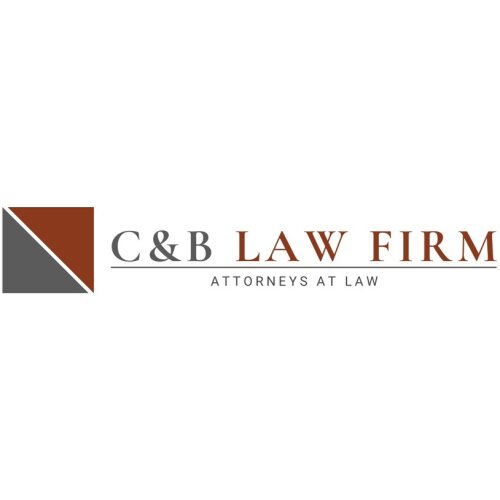Best Nonprofit & Charitable Organizations Lawyers in Ordu
Share your needs with us, get contacted by law firms.
Free. Takes 2 min.
List of the best lawyers in Ordu, Turkey
About Nonprofit & Charitable Organizations Law in Ordu, Turkey
Nonprofit and charitable organizations in Ordu, Turkey, play a significant role in addressing social issues and contributing to community development. These organizations operate under a unique legal framework that distinguishes them from profit-oriented businesses. They are usually established to pursue public benefit goals such as education, health, environment, culture, and social welfare. In Turkey, nonprofits can take various forms, including associations and foundations. Each form has its own legal requirements for establishment, governance, and operation.
Why You May Need a Lawyer
Engaging a lawyer specialized in nonprofit and charitable organizations can be crucial for numerous reasons:
- Establishment and Registration: Legal guidance is critical during the setup process, ensuring compliance with all local regulations and facilitating the registration with the proper authorities.
- Taxation: Nonprofits may benefit from tax exemptions or reductions, and a lawyer can help navigate the complexities of tax laws to maximize these benefits.
- Corporate Governance: Ensuring your organization adheres to its bylaws and relevant laws is crucial for maintaining its legal status and reputation.
- Contracts and Agreements: Nonprofits often engage in various contracts for services, partnerships, or funding, requiring professional legal oversight.
- Dispute Resolution: Legal disputes can arise with donors, beneficiaries, employees, or regulators, and a lawyer can represent the organization's interests.
Local Laws Overview
The legal framework for nonprofit organizations in Ordu, as in the rest of Turkey, is primarily governed by the Turkish Civil Code and specific laws related to associations and foundations. Key aspects include:
- Establishment: Foundations require a formal endowment of assets, while associations need at least seven founding members.
- Governance: Organizations must adhere to strict internal governance structures, including boards of trustees or management committees.
- Reporting Obligations: Regular financial reporting and auditing are mandatory to ensure transparency and accountability.
- Funding and Operations: Restrictions might apply to foreign funding and certain types of economic activities.
- Tax Benefits: Nonprofits may be eligible for tax exemptions upon application and approval by the relevant authorities.
Frequently Asked Questions
How do I establish a nonprofit organization in Ordu?
You need to decide on the type of organization (association or foundation), draft your founding documents, and fulfill the necessary registration processes with the local authorities.
Are there any tax benefits for nonprofit organizations?
Yes, non-profit organizations may apply for tax exemptions. However, they must comply with specific criteria and undergo periodic reviews.
Can a nonprofit organization in Ordu receive foreign funding?
Yes, but it typically involves additional scrutiny and compliance with regulations on foreign transactions and funding sources.
What are the financial reporting requirements for nonprofits?
Nonprofits are required to maintain transparent financial records and often must submit periodic reports to relevant government bodies.
Can a nonprofit pay salaries to its workers?
Yes, nonprofits can pay salaries to their employees, but the compensation must align with the organization's goals and public benefit purpose.
What legal documents are required for starting a foundation?
Foundations require a formal declaration of intent, asset endowment documentation, and registration with the adequate legal authority.
What is the difference between an association and a foundation?
Associations are member-based organizations, while foundations are asset-based without membership.
How can I amend the bylaws of my organization?
Amendments require a formal decision-making process outlined in your organization’s governing documents, sometimes needing approval from relevant authorities.
What are the penalties for non-compliance with nonprofit laws?
Penalties can range from fines and sanctions to dissolution. Legal representation can help mitigate risks and ensure compliance.
How can a lawyer help with donor agreements?
Lawyers can draft, review, and negotiate agreements to protect the organization’s interests and ensure compliance with applicable laws.
Additional Resources
For further information, consider reaching out to the following resources:
- Ministry of Interior: General Directorate of Civil Society Relations oversees many nonprofit regulatory aspects.
- Local Bar Associations: Provide access to legal professionals specializing in nonprofit law.
- Nonprofit Organizations Networks: Local and international networks offer guidance and support for nonprofit management.
Next Steps
If you require legal assistance in matters related to nonprofit and charitable organizations, consider the following steps:
- Schedule a consultation with a lawyer specializing in nonprofit law.
- Prepare relevant documents such as your organization's bylaws, financial statements, and any legal correspondences.
- Discuss your specific needs, whether it’s formation, operations, or compliance issues, with the attorney to get personalized advice.
- Consider joining local networks to stay informed about best practices and industry updates.
Lawzana helps you find the best lawyers and law firms in Ordu through a curated and pre-screened list of qualified legal professionals. Our platform offers rankings and detailed profiles of attorneys and law firms, allowing you to compare based on practice areas, including Nonprofit & Charitable Organizations, experience, and client feedback.
Each profile includes a description of the firm's areas of practice, client reviews, team members and partners, year of establishment, spoken languages, office locations, contact information, social media presence, and any published articles or resources. Most firms on our platform speak English and are experienced in both local and international legal matters.
Get a quote from top-rated law firms in Ordu, Turkey — quickly, securely, and without unnecessary hassle.
Disclaimer:
The information provided on this page is for general informational purposes only and does not constitute legal advice. While we strive to ensure the accuracy and relevance of the content, legal information may change over time, and interpretations of the law can vary. You should always consult with a qualified legal professional for advice specific to your situation.
We disclaim all liability for actions taken or not taken based on the content of this page. If you believe any information is incorrect or outdated, please contact us, and we will review and update it where appropriate.








